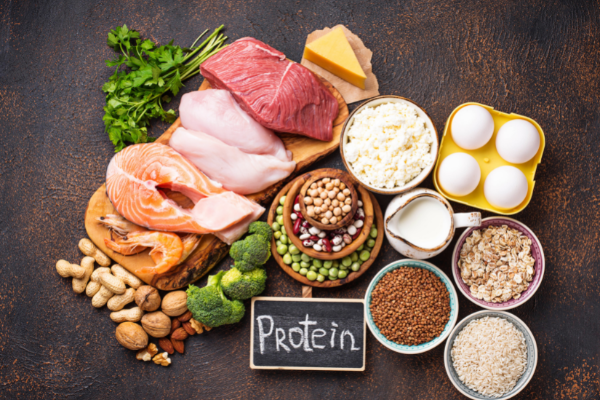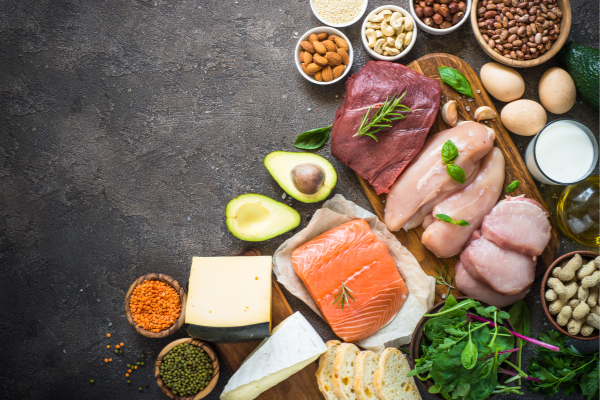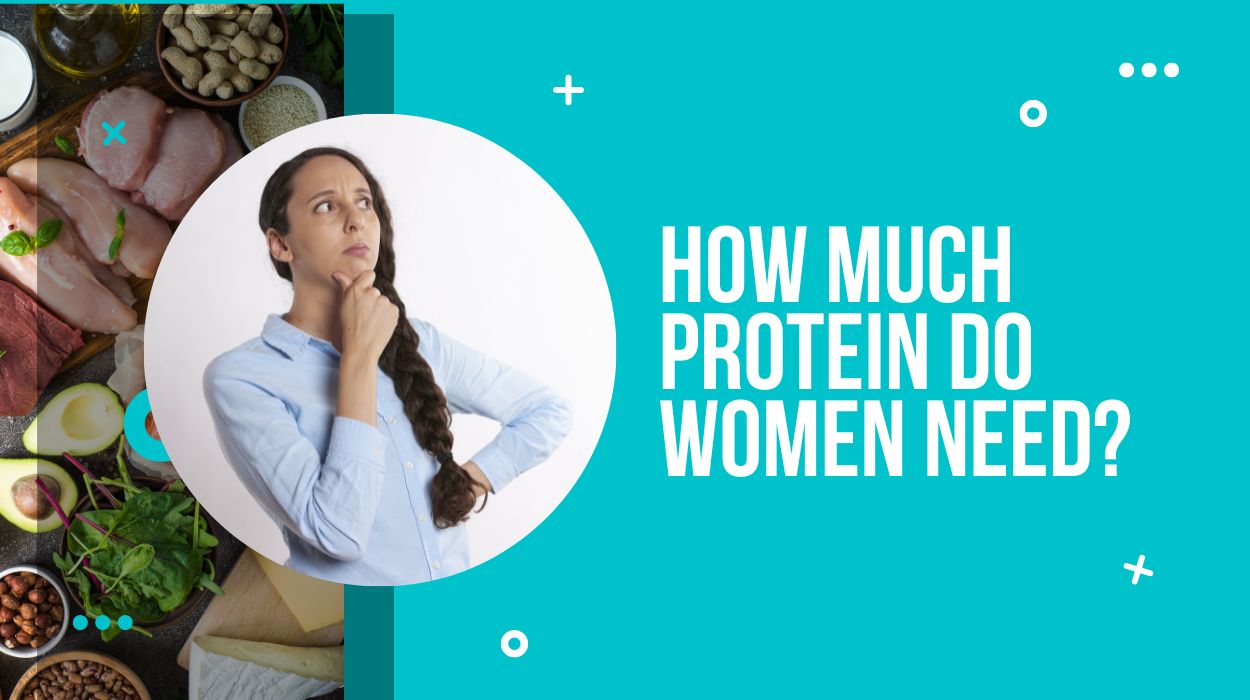Proteins are rightfully known as the building blocks of our body, pointing towards how essential they are for our body, but too little or too much protein both can be harmful to the body and disrupt its normal functioning.
How many proteins should I consume in a day to stay healthy? It depends a lot on your weight, exercise regime, and current reproductive stage, but worry not; you dont need to get worried by this! Allow us to guide you in understanding how much protein you require and also what are the best sources to get them, so let’s dive right into it!
Protein Requirement for an Average Woman:

As an average woman, the recommended dietary allowance for protein (RDA) is 0.8 ounces per kilogram of your body weight. You can calculate the protein required by your body by following the formula of – 0.8 x your body weight.
To make it more clear, suppose you are a woman who weighs 50 kgs, then according to the formula 50 x 0.8, you will need 40 grams of protein per day. This is the amount of protein your body should get without any fail; this is not the maximum amount of protein you can consume.
On average, a woman will require between 50 – 60 gm of protein, which should make up 10- 35% of your total calorie count, but the amount of protein a woman should consume will vary from woman to woman based on their lifestyle, age, body mass index, dietary requirement, etc.
For example, a woman who works out will require more protein than a woman who leads a normal lifestyle; hence arriving at a specific amount when all women lead such diverse lives is difficult.
To get a little more specific idea of how much protein you should eat, you can use this DRI calculator to arrive at a number but remember, a dietician or your personal doctor will be the best person to approach to get the most accurate number based on your requirements.
Protein for Pregnant or Breastfeeding Women

When you are pregnant with or breastfeeding a baby, protein obtains a critically important status in your body. Protein is essential to promote the healthy development of the baby’s body growing in your womb.
Once outside, the protein in your body is used to produce milk that nourishes the baby and provides its body with the protein required to build your baby’s developing tissues.
If you are currently pregnant – you should consume at least 60 grams of protein per day; the amount of protein you consume will account for about 20 – 25% of your total calorie intake.
If you are a lactating woman- you need to eat double the amount of protein than what an average non-pregnant or non-lactating woman needs at least 65 grams to 70 grams of protein per day.
Before starting on a diet, it will be good to consult your dietician or gynaecologist on the optimum amount of protein you need and the best sources to obtain it.
Why does a Woman Need Protein?

Protein is a large complex molecule found in every nook and corner of your body; it makes up the tissues required to literally build your body. Proteins are called the building blocks of the body, but why? Why do we need proteins in our diet?
There are about 10,000 types of proteins that play an essential part in keeping your body functioning! Why do you need proteins in your diet? Because-
1. Protein repairs your body
Protein is required by your body to repair your damaged cells; after strenuous muscle activity or exercise that causes tissue breakage, it is proteins that help your body recover and repair your tissues. Protein is the reason how you build muscles.
2. Protein builds your body
your bones, muscles, skin, cartilages, nails, hairs; everything comprises of protein. Proteins are the molecules that build up your body; look at them like lego blocks that are put together to form your body.
3. Protein helps in digestion
the protein consumed is majorly utilized in making enzymes used by the body to break down the food that you eat and utilize it in repairing, maintaining, and regenerating your body’s cells.
5. Protein helps in oxygenation
Hemoglobin, a protein found in your blood (that makes it red), is responsible for supplying oxygen to all parts of your body and keeping your cells replenished.
6. Protein helps regulate your body’s hormones-
during puberty, when your body undergoes change and develops, protein helps regulate the hormones in your body.
How Can I Consume Protein?

According to your diet, you can get proteins from two sources, namely, plants and animals called as plant-based proteins and animal-based proteins, respectively.
We have mentioned five sources under each category to help you get started-
1. Plant-based proteins
- Lentils – cooked lentils can make a healthy dinner option; half a cup of cooked lentils has 8.84 g of protein.
- Peanuts – much on some peanuts for 20.5 g protein every half cup.
- Potatoes- baked tasty potatoes! One large one has 8 gm of protein.
- Quinoa – a cup of cooked quinoa contains 8 g of protein!
- Chia seeds- healthy, low-calorie variants pack 2 grams of protein for a tablespoon.
2. Animal-based protein
- Fish-for every 100 g of fish, there’s approximately 22g of proteins.
- Poultry- love chicken? It has 111 gm of proteins for 100 grams!
- Red Meat- red meat like beef contains 20-24g of proteins for every 100g
- Eggs-one large boiled egg contains approximately 6g of proteins
- Milk-one cup of milk contains 8g of proteins.
FAQs
Q. Do proteins help in weight loss?
Yes, proteins help reduce your appetite and regulate the weight loss hormones helping you go leaner. This is the reason why every gym gal keeps saying protein this protein that.
Q. What happens to excess proteins?
When you overeat protein, it gets stored in your body in the form of fats.
You May Like to Read:
Which Indian whey protein brand is best?
Which whey protein is best for beginners?
What is the main functions of protein in the body?
How do I increase my protein intake?
Conclusion
Proteins are an essential nutrient required by your body; the protein requirement for every woman differs based on various factors. As mentioned in the article, whale ascertaining the specific amount required by your body is difficult. You now know the basic amount of proteins you should consume, also mentioned where sources form where to eat them!
Tell us in the comments which point you found to be most helpful!


